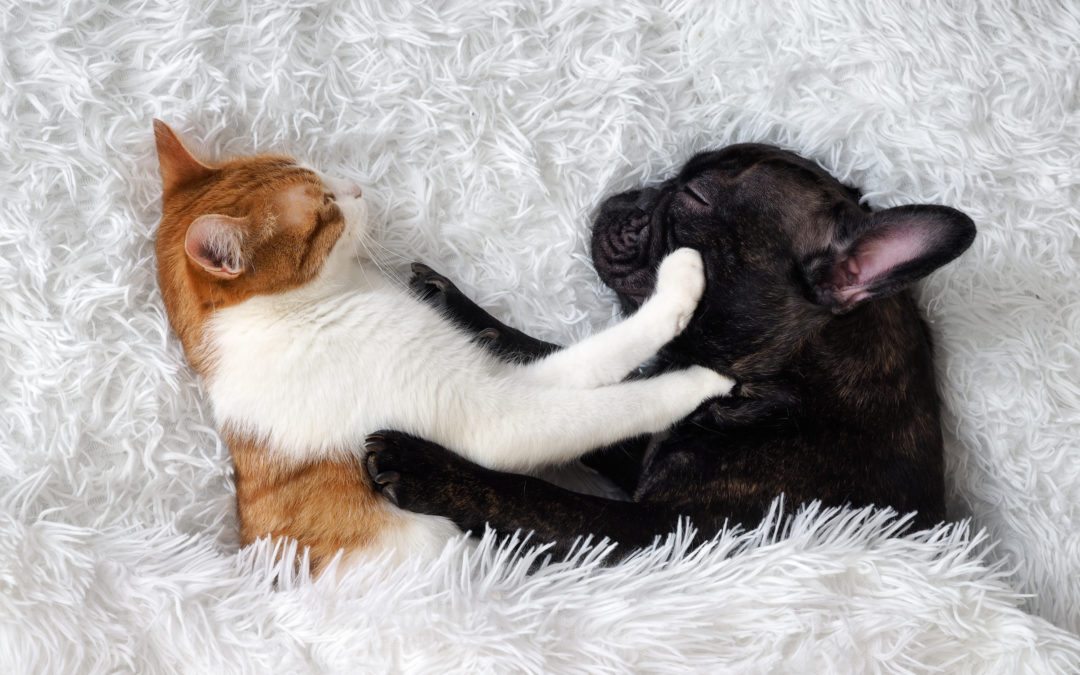As a veterinarian people bring their pets to me most often with concerns regarding physical health problems. Clients often have concerns about an animal’s separation anxiety, thunderstorm phobia and fear of fireworks. I have always considered and discussed with my clients how physical and emotional stress contributes to a physical illness of animals. This summer, due to many professional and personal experiences, the concept of stress and how it affects our furry friends has become a new special interest for me as a doctor and as an animal guardian.
I have a new understanding and appreciation for the limitless scope of what may stress an animal and another limitless spectrum of how that stress may affect the animal. Stress is often perceived as a consequence of a negative situation, but positive situations may be stressful as well.
A poignant example is a dog developing behavior changes and anxiety with no known physical abnormalities or changes in the household. After a normal physical exam and discussing the situation in depth with the dog’s guardian, I assessed the behavior changes were likely in response to the mixed bad and good stressors of a busy household. There are 3 young children, the oldest of which often argues with her mother, the middle child having a significant disability a toddler, and the father returning, from a 1-year deployment, the next day. The household was filled with negative and positive high-level energy and the dog was very affected by all of it.
Some of the management options we discussed included a talk between the oldest child and her mother to minimize conflict, ensure structured walks/exercise with the dog and an adult, and for each family member to be more aware of how each person’s emotional energy affects their dog. Other options for stress management include Zylkene an oral calming supplement, very light use of lavender aromatherapy oil on the dog bed and areas where the dog spends time, a calming pheromone collar, an anxiety shirt and a quiet confined place for the dog to retreat. There, of course, are stronger pharmaceutical options for anti-anxiety medication as well.
Cats are just as likely to develop behavior problems secondary to stress. In addition to the methods mentioned above, it is very important to have clean litter boxes and at least one litter box per cat and sometimes even one more box than cats. Inter-cat stress is very common in even the apparently friendly household. Above all cats can be very subtle about showing stress and/or may be reacting to very subtle stressors. Many guardians do not realize there are any stressors in their cats’ environments.
Following is a list of many possible stressors and many possible symptoms or manifestations of stress in animals.
Stressors:
Moving, death of humans or other animals, illness of the animal or humans or other animals, fighting between humans or other animals, new human baby, new animal family member, bullying by other animals, crowding, competition for food, toys, attention, a family member moving away or moving home, natural disasters, construction in the home or surrounding area, neighboring animals, stray animals, repetitive stress e.g. evacuation, temporary housing, new housing, aromatic products such as scented candles, plug-in deodorizers, incense, cigarettes, laundry detergent, scented cat litter, perfume, shampoo, vet visit, grooming visit, travel, being lost, being injured, chronic pain, obesity, boredom, lack of exercise, loneliness, violence, neglect, hunger, cold/heat, thirst, inappropriate nutrition, loud noises, machines…etc, etc, etc.
Behavioral responses:
Fear, shaking, over-grooming, vocalizing, clinging, hiding, decreased appetite, house-soiling, biting, scratching, fighting, barking, whining, drooling, panting, diarrhea, vomiting, hair loss, destruction, cowering, aggression, depression, hyperactivity, any and all completely unexpected and uncharacteristic behavior…
The concept I believe it is so important to convey is the sensitivity of our furry friends to their people and their environment. Animal senses are hundreds and thousands of times more sensitive than our own. These senses of smell, sight, hearing, touch, taste perception of body language and tone, are all inundated by highly stimulating human environments. The overstimulation of these acute animal senses leads to the manifestation of undesirable, and unhealthy behavior problems.
All behavior problems must be evaluated in light of physical exam and additional appropriate physical diagnostic evaluation in order to rule out or treat an illness that may be causing the change in behavior. The next step is to evaluate the physical and emotional stressors in the animal’s environment to develop a strategy to decrease these stressors.
Please consult your veterinarian for help with your furry friend’s mental and emotional health as well as physical health. The staff at Northgate Animal Hospital loves your animals and our job is to help you keep them happy and healthy. Please call with any questions or concerns so that we may help you provide the best care possible for your companion.
Dr. Laura J. Scott
Northgate Animal Hospital
719-481-3080
Have questions?






